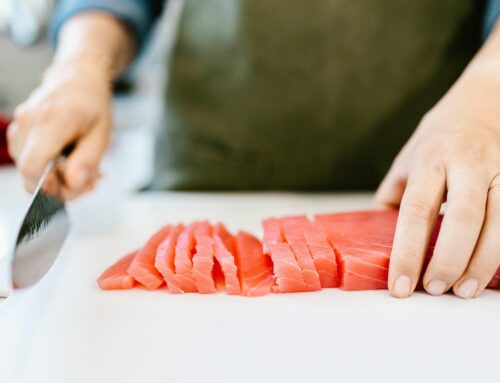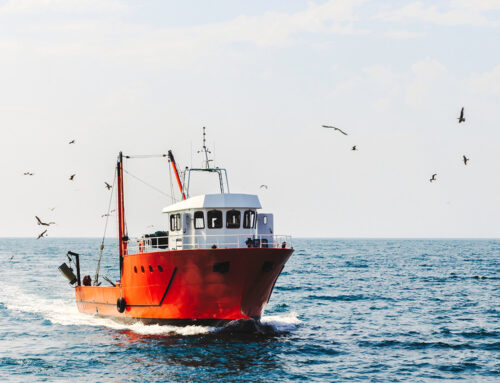If you think back to school and biology, you’ll recall that all marine life and fish are poikilothermic (their internal temperature varies with their environment). This makes them sensitive to temperature changes within their surroundings. Fish cannot maintain a constant body temperature and cannot survive in temperatures that deviate too much from their normal range.
Out of all the physical risks of climate change, temperature is considered to have the most impact on coastal fish forcing a fish migration that directly affect the fish stock in our ocean (specific fish species need to live in certain temperatures in order to thrive).
According to a World Wildlife Fund study in 2015, marine populations have declined by 49% between 1970 and 2012 with climate change causing the ocean to change more rapidly than at any other point in millions of years. To demonstrate this, fishermen around the world have noticed a behaviour change in salmon.
Consequences of climate change on salmon and other fish
- Optimum water temperatures for most salmonids is between 12.8-17.8°C. Warmer summers are increasing stream temperatures which make salmon more vulnerable to predators, parasites and disease.
- The acidic state of our oceans dissolves the shells of tiny molluscs – an important food source for juvenile North Pacific salmon and other smaller fish.
- Warmer ocean waters and shifting currents are prompting a northward shift in the range of some salmon and other fish populations, such as barracuda and Pacific cod.
- The rise in sea levels may inundate low-lying estuaries, a critical habitat for salmonids as they make their transition between river and ocean life stages.
For many fishermen, big catches have become more difficult, especially with sockeye salmon (found in the North Pacific Ocean) that seem to be running deeper and more widespread than in the past. Sport fishermen deduct that sensitive silver salmon are coming in late because of warmer water temperatures.
Temperature changes in the ocean are also causing fish stocks to move northward, where the water is cooler, e.g. seabass from warmer waters are now commonly caught in Scotland and Norway. In the Mediterranean, the average temperature is rising by 0.5°C each decade and more intense weather conditions like storms and heat waves are hindering the predictability of productivity in aquaculture. The Baltic Sea appears to be warming at a rate of 6-8°C/century. One significant consequence of this has been the rise in bacterial diseases like the vibrio gastro-intestinal infections, in fish.
Another significant impact is the increased acidity in the oceans (due to warmer temperatures), making it more difficult for marine organisms such as shrimps, oysters and corals to form their shells. Zooplankton also have calcium shells and form the base for marine food.
With warmer temperatures, the metabolism of fish increases, needing larger amounts of oxygen and food to fuel this high metabolism. If there isn’t enough food available, then all their energy is invested into fuelling their metabolism, leaving them with little energy for growth or reproduction.
Recent studies have shown that surface waters along South Africa’s subtropical east coast are warming significantly and this has been linked to warming and strengthening of the Agulhas current. Click here to read more about what this means for South Africa’s fish.
Our oceans work hard to keep us alive – generating half of the world’s oxygen and absorbing almost one third of carbon dioxide produced by burning fossil fuels.
The takeouts
Although there are many downsides to the impacts of climate change on our oceans, there are a few opportunities. Fish migration patterns provides us with an opportunity to monitor and predict how these complex ecosystems interact and will interact moving forward. “By understanding the rate at which things are changing,” said Stewart Frusher, an associate professor at the Tasmanian Aquaculture and Fisheries Institute, “we can gain some understanding of how we can manage our marine resources.”








